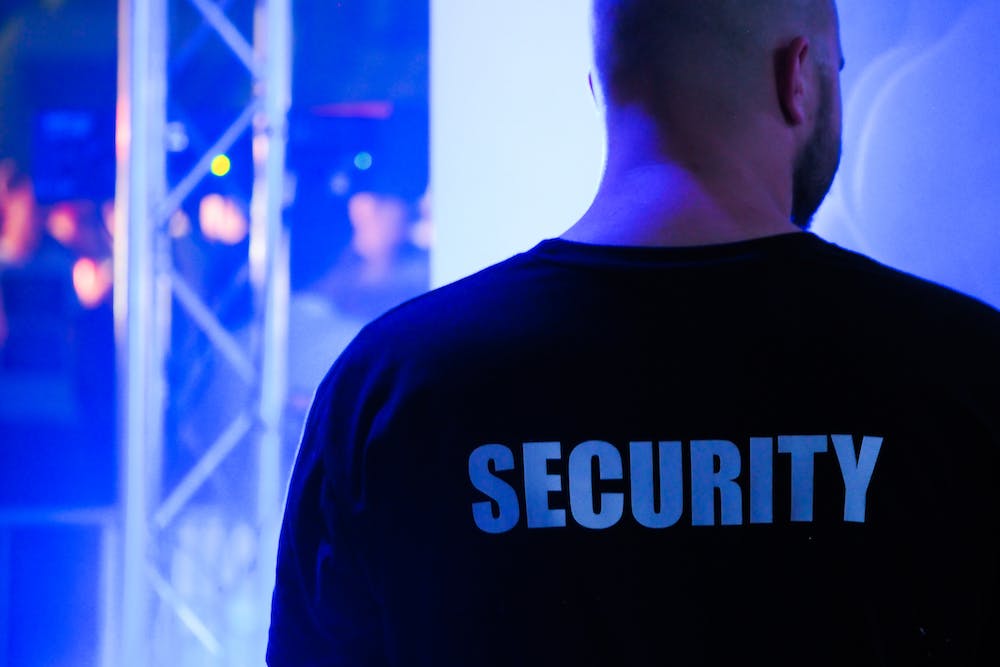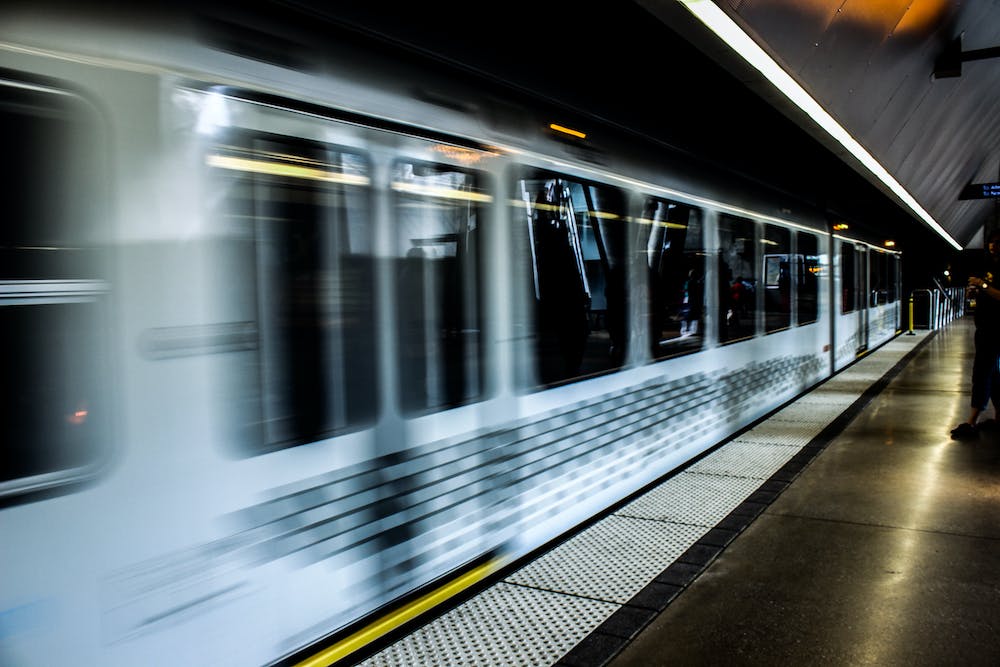
The Importance of Safety on Nights Out
Embarking on a night out is a time-honored social tradition, offering moments of bonding, shared memories, and collective enjoyment. However, as we revel in the thrill of the night, it becomes imperative to underscore the paramount importance of safety on nights out, ensuring that every nocturnal adventure remains a positive and secure experience.
A well-planned night out goes beyond just revelry; it’s an opportunity to foster meaningful connections and encourage bonding among friends. Discover the essence of a night out that encourages bonding, where shared experiences and genuine interactions lay the foundation for lasting friendships and unforgettable moments.
In the tapestry of a vibrant night, the act of creating and sharing memories becomes a cornerstone. Explore the nuances of a night out that encourages sharing memories, where each laughter-filled moment and shared adventure becomes a cherished part of the collective narrative, weaving a tapestry of shared experiences.
The true essence of a night out lies in its inclusivity, making it an experience that everyone can enjoy. Uncover the elements of a night out that everyone will enjoy, where diverse preferences and interests converge, creating an atmosphere where every participant feels a sense of belonging and joy.
Promoting creativity adds an extra layer of excitement to a night out, turning it into an immersive experience. Delve into the facets of a night out that promotes creativity, where artistic expressions, spontaneous moments, and imaginative endeavors contribute to the vibrant energy of the night.
Behind every memorable night out is meticulous planning that ensures a seamless and enjoyable experience. Unravel the secrets of planning a memorable night out, where attention to detail and thoughtful arrangements pave the way for an evening filled with joy and shared laughter.
Beyond the individual experiences, nights out play a pivotal role in the broader social fabric, contributing to the rich tapestry of social life. Explore the profound role of nights out in social life, where these nocturnal escapades become threads that weave together the social interactions and connections that define our communities.
As we celebrate the significance of nights out, let us also champion the imperative of safety. These shared experiences should be embraced within an environment that prioritizes well-being, ensuring that each night out remains a beacon of joy, camaraderie, and, above all, safety.
Explore safety considerations for a worry-free night, and consider unique venues like Sixes Social Cricket to add a thrilling yet secure dimension to your nocturnal adventures.
The Dangers of Nightlife

Nightlife can be pleasurable, but it is crucial to be cognizant of the potential risks. Here are some objective statements regarding the dangers of nightlife:
1. There is an increased likelihood of violence: Nightlife establishments such as bars and clubs can attract individuals under the influence of alcohol or drugs, resulting in a higher probability of violent incidents.
2. Alcohol-related accidents are prevalent: Excessive consumption of alcohol in nightlife settings can impair judgment and coordination, hence increasing the risk of accidents such as falls, car crashes, or drownings.
3. There is a risk of substance abuse: Nightlife venues may expose individuals to drugs and encourage experimentation, which can lead to substance abuse and addiction.
4. Vulnerability to theft: Crowded venues make it easier for thieves to target unsuspecting individuals and steal their belongings, including wallets, phones, and purses.
5. Unsafe sexual encounters: The combination of alcohol, drugs, and casual sexual encounters in nightlife settings can result in unprotected sex and an increased risk of sexually transmitted infections (STIs) or unwanted pregnancies.
6. Noise-induced hearing loss: Loud music at clubs and concerts can cause temporary or permanent damage to hearing, particularly without the use of ear protection.
It is important to note that not all nightlife experiences involve these risks. Being aware of The Dangers of Nightlife and taking necessary precautions can help ensure a safe and enjoyable night out.
Preventing Alcohol-Related Accidents
To ensure the prevention of alcohol-related accidents, please follow the instructions below:
1. Appoint a designated driver: Always make sure that there is someone responsible for driving who does not consume alcohol, to ensure the safe transportation of everyone.
2. Use public transport: If there is no designated driver available, choose to use buses or trains. This will eliminate the need for someone who is under the influence to drive.
3. Call a taxi or use ride-sharing apps: If public transport is not accessible, call a taxi or use ride-sharing apps to ensure a safe journey home. These services offer a reliable alternative to driving while intoxicated.
4. Consider staying overnight: If possible, make arrangements to stay at a friend’s place or book a hotel room to avoid the need for transportation after consuming alcohol. Planning ahead and arranging accommodation will guarantee a safer night out.
5. Monitor alcohol consumption: Be aware of your limits and avoid excessive drinking. Pace yourself and alternate alcoholic beverages with non-alcoholic ones to stay hydrated and in control.
6. Resist peer pressure: Be firm in your decisions and do not give in to pressure to consume alcohol excessively or engage in risky behaviors. Surround yourself with supportive friends who prioritize safety.
7. Stay vigilant of your surroundings: Pay attention to your environment and avoid potentially hazardous situations. If you feel uncomfortable or threatened, remove yourself and find a safe space.
8. Educate yourself: Learn about the risks and consequences of accidents related to alcohol. Understanding the dangers associated with impaired driving can promote responsible behavior.
By implementing these measures, you can significantly reduce the risk of alcohol-related accidents and ensure a safer night out.
The Role of Bouncers and Security Staff

When it comes to patron safety, the role of bouncers and security staff is vital. They play a crucial part in maintaining order, resolving conflicts, and ensuring that everyone has an enjoyable and safe experience.
One of their key responsibilities is control and prevention. Bouncers and security staff have the ability to anticipate and diffuse potential conflicts. They use crowd control techniques and are skilled at removing individuals who pose a threat. By their mere presence, they discourage disturbances and promote a peaceful atmosphere.
Another important aspect of their role is checking identification. Bouncers diligently verify the age and identity of patrons at venues that serve alcohol. By doing so, they enforce age restrictions and prevent underage drinking. This not only ensures compliance with the law but also creates a safer environment for everyone.
In times of emergencies, bouncers and security staff are trained to respond quickly. They are well-versed in first aid and CPR, allowing them to provide immediate assistance until medical professionals arrive on the scene.
Bouncers and security staff also provide customer assistance. They are there to help patrons with any lost belongings and guide them to the exits. They strive to ensure a positive and secure experience for everyone.
To emphasize the importance of bouncers and security staff in ensuring safety, let me share a real-life story. In a busy nightclub, a fight broke out between two intoxicated individuals. Thanks to the alertness of the bouncers, the fight was quickly contained. The bouncers promptly escorted the individuals out of the venue, ensuring the safety of everyone involved.
Safety Tips for Nights Out
Give priority to safety in order to have a night out without worries with these
Plan in advance: Make a plan with friends, share your itinerary, and transportation details.
Stick together: Stay with your group of friends throughout the night for safety and a quick response to any issues.
Monitor your drink: Always be cautious about your drink, keep an eye on it, and do not accept drinks from strangers. Get a new one if you leave it unattended.
Stay alert: Be aware of your surroundings, trust your instincts, and remove yourself from uncomfortable situations.
Use reliable transportation: Choose licensed taxis, ride-sharing services, or a designated driver to get home safely.
Charge your phone: Make sure your phone is fully charged in case you need help or need to find a safe location.
Be aware of emergency numbers: Familiarize yourself with local emergency numbers for immediate assistance.
Take care of your belongings: Keep your personal belongings secure and avoid carrying large amounts of cash or expensive jewelry.
Drink responsibly: Consume alcohol in moderation to avoid impaired judgment and dangerous situations.
Trust your instincts: If something feels wrong, trust your intuition and remove yourself from the situation.
By following these Safety Tips for Nights Out, you can have a more enjoyable and secure night out with your friends.
Staying Aware and Alert
Staying aware and alert are crucial for your safety when going out in the evenings. It is important to follow these guidelines to remain vigilant and protect yourself from potential risks.
1. Be observant: Pay close attention to your surroundings and the people around you. Take note of any unusual behavior or suspicious individuals.
2. Trust your instincts: If something doesn’t feel right or if you sense danger, take necessary precautions to remove yourself from the situation.
3. Limit alcohol consumption: Drinking excessively impairs your judgment and makes you more vulnerable to potential dangers. It is crucial to exercise moderation to stay aware and alert.
4. Stay connected: Make sure your phone is charged and easily accessible. Inform a trusted friend or family member about your plans and check in with them regularly.
5. Travel in groups: There is safety in numbers. Stick together with your friends and look out for one another throughout the night.
6. Plan your transportation: Arrange for a designated driver or use reliable and licensed taxi services or ridesharing apps to ensure a safe journey home.
7. Watch your belongings: Keep your personal belongings secure and within sight to prevent theft or loss.
8. Be cautious with strangers: Avoid accepting drinks or invitations from people you don’t know. Trustworthy individuals will respect your boundaries.
By staying aware and alert, you can greatly reduce the risks involved in an evening out and ensure your safety and well-being.
Personal Safety Measures
When it comes to personal safety, it is important to implement certain measures that can greatly increase your chances of staying safe. Here are some essential personal safety measures to keep in mind:
- Always be aware of your surroundings. Stay alert and pay attention to those around you, as well as any potential risks or suspicious activity.
- Whenever possible, travel in groups. There is safety in numbers, so try to stick with friends or acquaintances.
- Let someone know about your plans. Inform a friend or family member about where you will be and when you expect to return.
- Trust your instincts. If a situation or person feels unsafe, remove yourself from it immediately.
- Avoid excessive drinking. Consuming alcohol in moderation helps maintain clear judgment and awareness.
- Make transportation arrangements in advance. Plan a safe way to get home, such as organizing a designated driver, using a ride-sharing service, or familiarizing yourself with public transportation schedules.
- Take care of your personal belongings. Only carry essential items and avoid flaunting valuable possessions.
- Stay in well-lit and populated areas. Stick to busy streets and avoid walking alone in poorly lit or isolated areas.
- Learn basic self-defense techniques. Acquiring knowledge of self-defense can give you the confidence to handle potentially dangerous situations.
By following these personal safety measures, you can take steps to ensure your well-being and minimize the risks associated with going out.
Additional suggestions:
- Consider enrolling in a self-defense class to learn effective techniques for protecting yourself in hazardous situations.
- If you are visiting a new or unfamiliar area, do some research beforehand to familiarize yourself with the surroundings.
- Stay connected with a reliable friend or use a safety app that allows you to share your real-time location throughout the evening.
- Carry a personal safety alarm or whistle to attract attention and deter potential attackers.
Importance of Group Safety
The importance of group safety cannot be overstated. Prioritising the well-being and security of the entire group is crucial for a positive and enjoyable experience.
1. Increased security: Being in a group provides added security. It deters potential wrongdoers and reduces the risk of crime or harassment.
2. Look out for each other: In a group, individuals can keep an eye on their friends, ensuring everyone stays together and accounted for. This is especially important in crowded or unfamiliar environments.
3. Shared responsibility: By looking out for each other, the group takes on a shared responsibility for everyone’s safety. This includes checking in, staying together while moving between venues, and intervening in uncomfortable or dangerous situations.
4. Quick response to emergencies: A group offers more people available to provide help and support during emergencies or accidents. This can make a significant difference in prompt and appropriate action.
5. Emotional support: Group safety goes beyond physical safety. It also involves providing emotional support and reassurance to individuals who may feel anxious or overwhelmed. Having friends by their side enhances their overall well-being.
To ensure group safety, establish a designated meeting point in case of separation, plan activities together, and communicate openly about any concerns or boundaries. Remember, prioritising group safety fosters a positive and enjoyable night out for everyone involved.
Managing Intoxication Levels
Managing intoxication levels is crucial for ensuring safety and well-being. Follow these strategies to effectively maintain control:
- Keep track of your alcohol consumption: Mindfully monitor the number of drinks you consume per hour.
- Alternate between alcoholic and non-alcoholic beverages: Stay hydrated and slow down alcohol intake by drinking water or soda in between alcoholic drinks.
- Eat a substantial meal before drinking: Prioritize a meal that includes carbohydrates, proteins, and healthy fats as it can help slow down the absorption of alcohol.
- Choose beverages with lower alcohol content: Opt for drinks that have a lower alcohol by volume (ABV) percentage.
- Plan your transportation in advance: Arrange for a designated driver or utilize public transportation or ridesharing services.
In a real-life account, Michael implemented these strategies. He paced himself, alternated between alcoholic and non-alcoholic beverages, had a substantial meal, and chose lower alcohol content drinks. Additionally, Michael planned ahead and arranged for a designated driver to ensure his safety. His conscious efforts resulted in a responsible and secure night out.
Safe Transportation Options
When it comes to a night out, safe transportation is essential for well-being. Here are some options to consider:
Taxis: Taxis are convenient and available in most urban areas, providing door-to-door service.
Ride-Sharing Apps: Uber and Lyft offer safe rides that are just a few taps away. These apps allow you to track your driver’s location.
Public Transport: Buses and trains offer cost-effective and safe travel with fixed routes and schedules.
Designated Driver: If you’re going out with a group, designate a sober driver to safely drive everyone home.
Walking or Cycling: For short distances in safe surroundings, walking or cycling can be a healthy and eco-friendly option. Wear reflective gear at night.
In 2019, a heartwarming story emerged about a taxi driver named John. One night, John noticed a group of young people struggling to find a safe ride home. He offered to drive them home for free, providing a safe transport option and restoring faith in humanity. This act of kindness reminds us that there are good people dedicated to keeping others safe on their nights out.
Planning for Emergencies
Planning for emergencies is essential for ensuring safety on nights out. Here are some steps to consider:
1. Research the area: Familiarise yourself with the location and locate nearby emergency services, hospitals, and police stations.
2. Share your itinerary: Inform a trusted friend or family member of your plans, including your location and expected return time.
3. Keep emergency contacts handy: Save important numbers like taxi services, local emergency services, and friends or family members in your phone.
4. Stay aware of your surroundings: Always be conscious of your surroundings and trust your instincts. If something feels wrong, leave or seek help.
5. Have a backup plan: Identify alternate transportation options, such as public transportation or designated drivers, in case your original plans fall through.
6. Carry identification: Keep some form of identification with you at all times. This will be crucial for emergency services to assist you if needed.
7. Know basic first aid: Having basic knowledge of first aid techniques can be invaluable in emergency situations. Consider taking a first aid course to enhance your skills.
Remember, planning for emergencies can help you stay safe on nights out and improve your overall experience.
Fact: A study conducted by the Institute of Alcohol Studies in the UK found that around 50% of alcohol-related hospital admissions occur during weekends, emphasising the importance of proper emergency planning.





